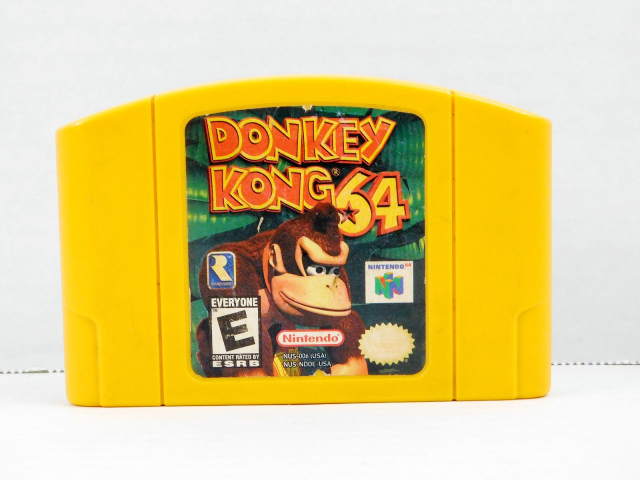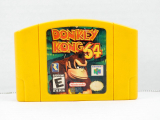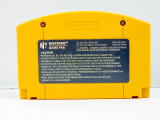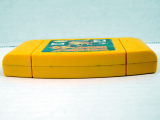Donkey Kong 64
Donkey Kong 64 is a 1999 platform game developed by Rare and published by Nintendo for the Nintendo 64. It is the only Donkey Kong game to feature 3D gameplay.
Donkey Kong 64 is a 1999 platform game developed by Rare and published by Nintendo for the Nintendo 64. It is the only Donkey Kong game to feature 3D gameplay. As the gorilla Donkey Kong, the player explores themed levels to collect items and rescue his kidnapped family members from King K. Rool. The player completes minigames and puzzles as five playable Kong characters—each with their own special abilities—to receive bananas and other collectibles. In multiplayer modes, up to four players can compete in deathmatch and last man standing games.
Rare began working on Donkey Kong 64 in 1997, following the completion of Donkey Kong Country 3 (1996). It was conceived as a 2.5D platformer similar to Country before becoming a more open-ended game using the engine from Rare's Banjo-Kazooie (1998). A 16-person team with many recruits from the Banjo group finished it in 1999. It was published by Nintendo in North America in November and worldwide in December. Donkey Kong 64 was the first game to require the Nintendo 64 Expansion Pak, an accessory that added memory resources. The US$22 million marketing campaign included advertisements, sweepstakes, and a national tour.
Donkey Kong 64 received acclaim and was Nintendo's top seller during the 1999 holiday season; it ultimately sold 5.27 million copies worldwide. It won the 1999 E3 Game Critics award for Best Platform Game and multiple awards and nominations from magazines. Reviewers praised the exceptional size and length, but criticized its camera controls and emphasis on item collection and backtracking. Some cited its gameplay and visual similarities to Banjo-Kazooie as a detriment. Critics said Donkey Kong 64 did not match the revolutionary impact of Donkey Kong Country but was still among the Nintendo 64's best 3D platform games.
Donkey Kong 64 was Rare's final Donkey Kong game prior to its acquisition by Microsoft in 2002 and the last major Donkey Kong game until Jungle Beat (2004). It was rereleased on Nintendo's Wii U Virtual Console in 2015. Retrospective reviews of Donkey Kong 64 were mixed; critics considered it emblematic of the tedium in Rare's "collect-a-thon" adventure platformers. The "DK Rap", a song featured in the introduction, garnered notoriety as one of the worst songs to feature in a video game.




